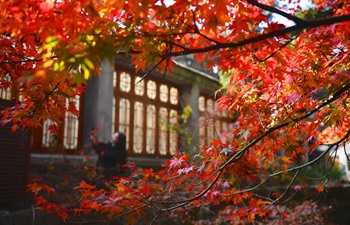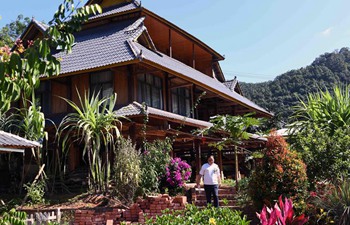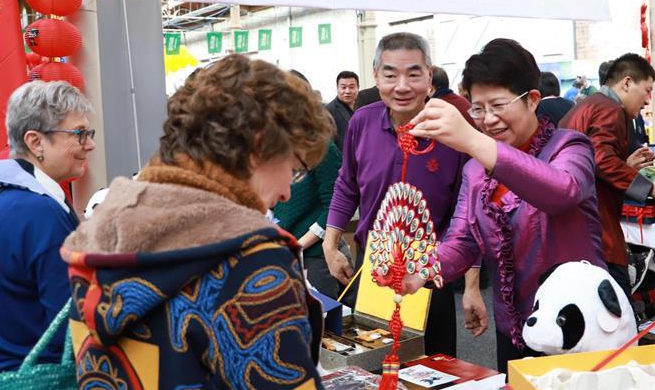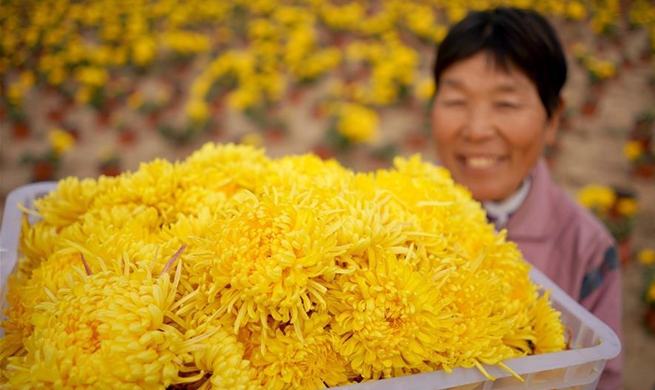CHENGDU, Nov. 18 (Xinhua) -- It can be astonishing to see a thousand people eating hot pots together in a garden, and much harder to imagine is that this food heaven in Chengdu, capital of southwest China's Sichuan Province, used to be a wasteland.
Tianfu Hot-pot Town, with an area of over 400 hectares, is becoming a popular destination for both Chengdu locals and tourists.
The town, as its name suggests, is composed of three hot pot restaurants and some other entertainment areas.
Each restaurant has about 200 tables, allowing people to enjoy hot pots in the spacious garden by the lake.
"We like drinking tea and playing mahjong in the daytime and when the night falls, we'll eat hot pots while listening to live music," said Wang Yuxiu, a retired local who comes to one of the restaurants, Chateau Margaux, with her friends.
At dinner time, Chateau Margaux is decorated with Chinese lanterns while water shows are going on in the center of the lake.
"Chateau Margaux receives 2,000 to 3,000 people each day, with daily revenue up to 300,000 yuan (about 42,800 U.S. dollars)," said Fu Wei, CEO of Chateau Margaux.
Three years ago, this area used to be a wasteland with a polluted lake. "We chose to tackle water pollution first and then plant trees around the lake as we invested in this land," said Fu.
Now the lake is open to the public and people can go fishing for free, and the town has taken away pollution and given locals a clean environment.
Chengdu is implementing its greening project to build green belts of 17,000 km long, which will cross the town. "We've proven that ecological benefit and economic benefit can come together," said Fu.
"In the town, hot pot ingredients, including potatoes, yak meat and peppers are all ordered from the farmers nearby, with 164 poverty-stricken households having seen their income increase," said Yang Yang, with Sanhe Street Office of Chengdu.
The town also provides jobs for nearly a thousand residents nearby, many of whom are farmers and unemployed youth.
"Before the town was built, locals used to work at the brickyard or factories that produced remote-control units and sanitary fittings," said Li Mei, an employee with Chateau Margaux.
Instead of the labor-intensive industry, now the locals have the chance to work in the service sector. "I was paid less than 2,000 yuan per month, but now I can earn more than 3,000 yuan," said Li Hua, another employee.
"Even those over 50 can work in the restaurant, and we can live in the staff dormitories equipped with air-conditioners and washing machines," said Li Mei.
In the first half of this year, "Tianfu Hot-pot Town" received 1.87 million people with revenue totaling more than 92 million yuan, according to the local publicity department.

















